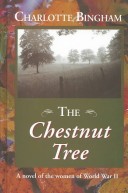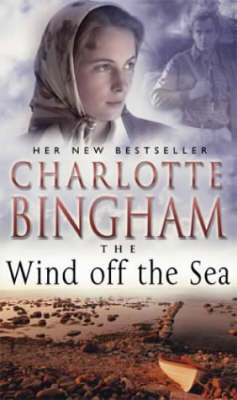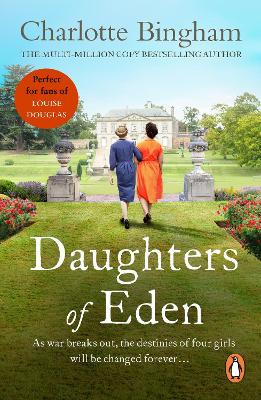Windsor Selection S.
5 total works
Under the tree on the green the women of Bexham meet to look back on a landscape that has changed irrevocably, and which they have in their own ways helped to alter. None of them are the same, and yet, with the men returning from war, they are expected to slip back into their simple roles of mother, daughter, grandmother. This, more than anything perhaps, is their greatest sacrifice. Having been freed by war, they have now to relinquish that very independence that gave them the liberty for which they once fought. Only the chestnut tree planted by Corrie at the edge of the village flourishes in the accepted manner, finally becoming the uniting symbol of all that has passed forever.
No matter what the age or circumstances of the person, Waldo Astley is not just a breath of fresh air - but the wind off the sea.
A riveting story of love and loss set in wartime Britain from the million copy and Sunday Times bestselling author Charlotte Bingham, perfect for fans of Louise Douglas and Dinah Jefferies.
'One of Britain's most bankable novelists.' THE DAILY EXPRESS
'A rip-roaring combination of high romance and breathless excitement' MAIL ON...
A riveting story of love and loss set in wartime Britain from the million copy and Sunday Times bestselling author Charlotte Bingham, perfect for fans of Louise Douglas and Dinah Jefferies.
'One of Britain's most bankable novelists.' THE DAILY EXPRESS
'A rip-roaring combination of high romance and breathless excitement' MAIL ON SUNDAY
'Compelling.' WOMAN & HOME
AS WAR BREAKS OUT, THE LIVES AND FORTUNES OF FOUR GIRLS WILL BE CHANGED FOREVER...
Marjorie, left at a boarding school by her emigrating mother; plain Poppy, pushed into marriage with a mean-spirited aristocrat; Kate, despised by her father, but determined to prove herself; and man-mad Lily, who turns out to be the bravest of them all.
That all of them are chosen to work undercover for the espionage unit at a beautiful stately home is a surprise, not least to them. At Eden Park they meet four unusual young men - Eugene, the feckless Irishman; Robert, Kate's brother; and Scott, the undisputed favourite of the unit. Only Jack Ward, the mysterious spymaster, manages to remain aloof as he guides their destinies.
They will look back on this time as having felt more alive than ever before...
That all the generations find themselves once more united in a battle, this time to save the village they love, is both an irony and finally, a saving grace. Once more an enemy has to be defeated, once more they must arm themselves, but this time for a war of a very different kind.



